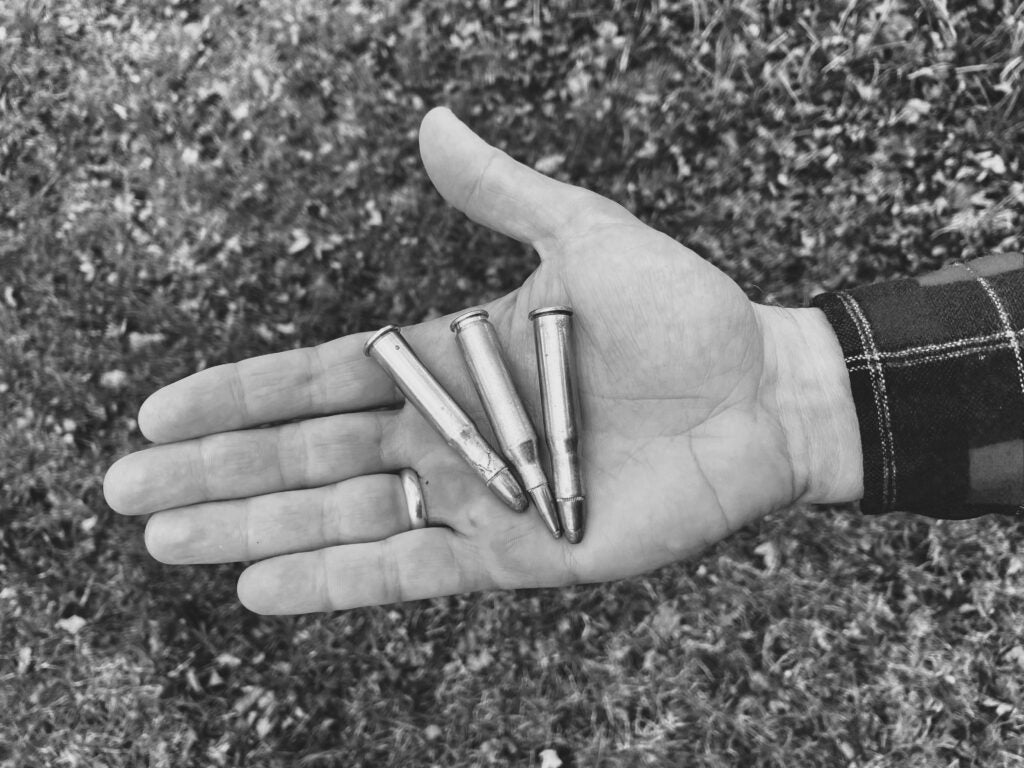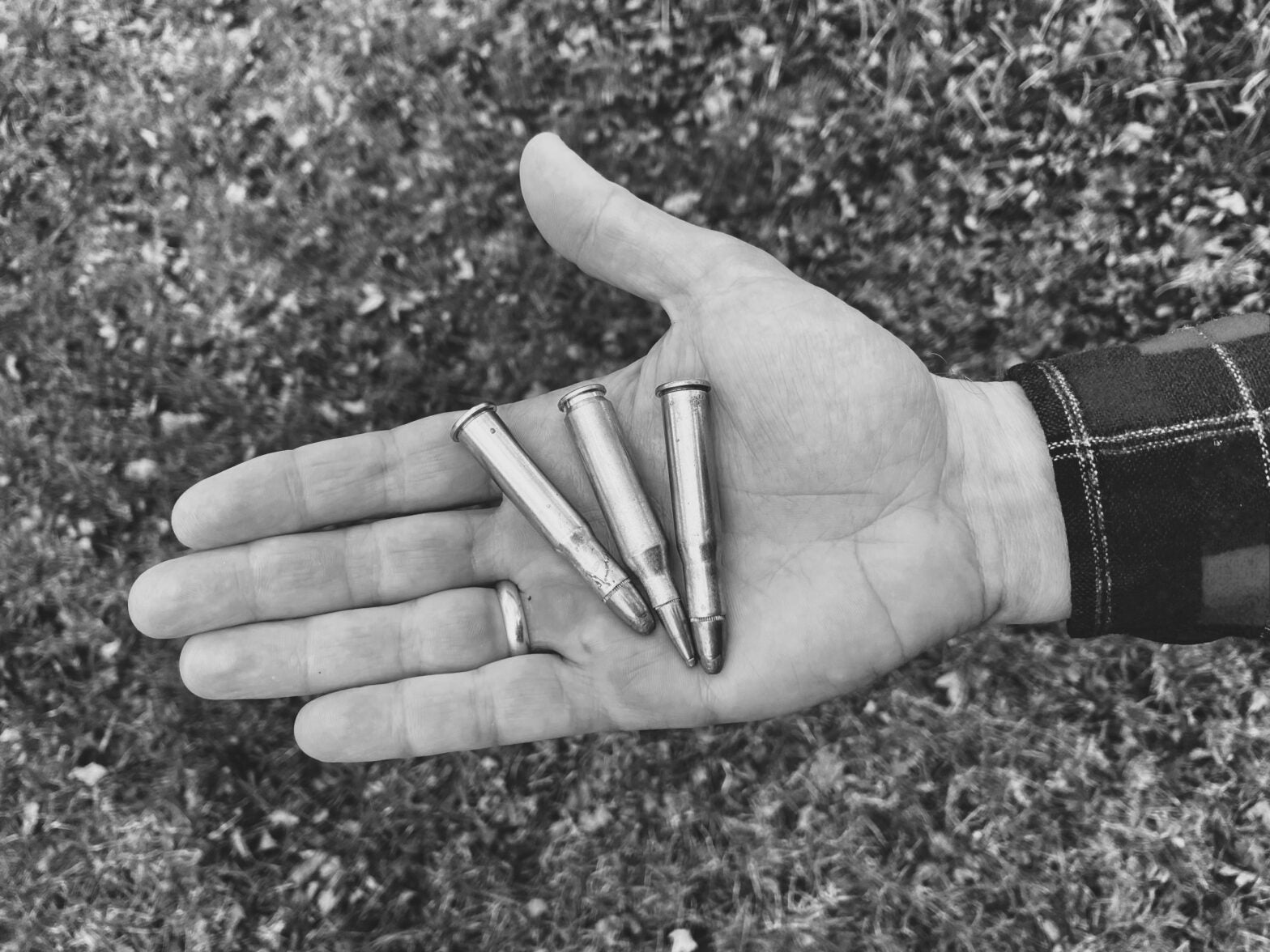Sean F. McEnroe
The provisional title of my CSSH article was “Immune to Bullets,” but I soon settled on something less sensational and more descriptive. It went to press as “Cross-Cultural Perceptions of Technology and Magic in the Ghost Dance, Boxer Uprising, and Maji Maji Rebellion (66-1, 2024).” The article describes the mingling of ideas about technology and magic in the worlds of late colonial warfare. The final title expresses these ideas clearly, but the change also erased something: a whisper of personal experience.
Historians’ research practices are seldom adequately explained, perhaps because our paths to truth are so idiosyncratic and meandering. We work for years in relative isolation, only to re-emerge from the archives with carefully crafted writing that conceals most of the process. Unlike anthropologists (whose writing foregrounds the author) and unlike political scientists (with their careful exposition of theory and method), historians and their craft remain in the shadows. We are self-obfuscating writers.
My graduate school professor, William B. Taylor, approached the issue in a circumspect way. He encouraged his students to pick out a few important historians and “study the whole arc of their careers.” Somewhere buried in the endnotes, acknowledgements, and dust jackets, we would find the stories of their lives. It was an instructive exercise, and one that has stuck with me ever since.
In the midst of writing “Immune to Bullets,” I received a welcome invitation from Sylvia Sellers-García and Karen Melvin—both historians, and both former students of Bill Taylor. They were organizing a workshop on storytelling at Boston College. The participants would include not just conventional academic writers, but also novelists, journalists, and poets. The goal was to transgress traditional genres and write in new ways. It was a chance to explain an aspect of my academic work that would otherwise remain concealed from view. The invitation to the BC workshop forced me to ask a fundamental question about my project on guns, bullets, and magical defenses: Why was I writing this article instead of some other one?
What follows is a halting answer, offered in the form of a prose poem. It is a kind of condensed memoir, though, as you shall see, I am neither a poet nor a memoirist. Despite the title, it is not actually a Villanelle, though it shares with that genre an oddly repetitive pattern of images. The piece is heavy handed in its mimicry of dead writers—but, of course, that is how historians think. The shameless invocation of Dostoevsky, the gesture toward Hegel, the unavoidable Freudianisms, and the nod to Fitzgerald may all raise eyebrows or illicit sighs, but the story itself is true in every detail.

VILLANELLE Click. . . Click. . . Click . . .Click. There are only five chambers in an Airweight revolver—five chances for something to go wrong. Click. The wall of my father’s apartment exploded in a shower of plaster. It was not as loud as you’d expect—nothing cinematic. Outside on the sidewalk, people were still walking around. That was it. That’s all that happens when a quiet older man, gentle in manner and still unaware of his gnawing cancer, fires a bullet into the corner of his cluttered, dimly-lit, one-bedroom apartment. The police did not come—though my father clearly thought they would. He said nothing. He opened an old oak desk drawer that smelled of tobacco, emptied the single brass casing, and slammed it shut. He peered out the front door, frightened, like a boy facing oncoming traffic, then turned back to study the hole in the wall. The bullet was still there, a few inches back, buried in the dust and drywall, dormant, but menacing, like the little black spot on the skin of his ankle. I was still there, silent. * There are no rules stricter than those for handling a gun: When you lift it to your shoulder, or aim it from your outstretched hands, you should imagine a line extending infinitely like a flashlight into the night sky. That line, that beam, must never cross another human’s path. You must never store it loaded. You must always treat it as if it were. * When an old revolver is placed in your hands, it is surprisingly heavy. Somehow the metal is never the same temperature as the room – it is always cold or warm to the touch. Not like modern plastic pistols, with their invisible moving parts, rubber grips, and glowing sights. Modern pistols do not seem real. They have no heft, no signs of wear, no left or right-handed stains of tarnish and sweat, no legendary notches in the handle, no marks of disgrace left on the barrel where it was dropped carelessly and shamefully onto the rocky ground. * There is no explaining guns to those who have not touched them. Just the word “gun,” dropped carelessly in conversation halts the chatter of a dinner party cold. When a man at a dinner party speaks of guns—even an educated man, even a well-liked man—surrounded by other men with nice glasses, surrounded by women with voices like bells—he becomes the center of attention. . . but not of welcome attention. In his prouder moments, perhaps after a third glass of wine, he may speak the word with a glow of expectation, awaiting looks of curiosity, admiration, or fear. But this is a mistake. He will instead be met with silence, distain, condescension, and pity. With pity? Yes. But that is not how I looked at my father, or at his boots sprinkled with plaster dust. No, that is not how I felt when I saw him afraid. It is a gift among men never to pity—a small gift over a flat tire, an awkward comment, or a missed shot. A much bigger gift to a man who is crushed by weakness or regret. When a man lays in bed, unable to rise, too thin to lift his grandson. That is the time to remember him strong, to pass over his faults—not just to show your admiration and gratitude, but to feel it. But I am only speaking of some men. None of this is understood by men with fine glasses surrounded by women with voices like bells—men to whom the word “marksman” means either something terrible, or nothing in particular. * The hands of a marksman can be kind—just as my fathers were. A bit red around the knuckles, thin and long—the hands, really, of a pianist or a writer—recognizably my hands until the very end. Once, he pulled a ring off that hand; it was hanging loose. If I told you that I sometimes lecture with this ring on my finger—a great square ring, stamped with an eagle on a brace of rifles—would you believe me? Would you think me deranged? I do wear it, though often with the eagle turned around and invisible, and the image tucked surreptitiously in my palm as I walk toward the lectern. I had to keep something. And after all, I’m not the sort of man to tuck a pistol in his waistband, or hide it away in a well-oiled shoulder holster. You can’t do that sort of thing for very long before it drags you down like Bilbo’s ring. A man with a gun in his vest is the least free man on earth. I have seen him all over Jackson County. He is confused—this man with a gun—over who is the master and who the slave. A gun is a burden, a treasure, a curse. It’s a heavy piece of metal that cannot be set down. At least, that is what I say to myself, late at night, when I step into the garage and slide open the hasp on the gun safe. * I clean a gun called the “Little Scout.” Its tiny 14 ½-inch barrel remains legibly stamped with the year of manufacture: 1902. The parts are worn down, the cartridges won’t extract. I do not fire it anymore, but I used to. At seven, it was given to me—an unwrapped present. On the shoulder of a little boy, the Stevens Little Scout looks like a man’s rifle, but it is not. Or maybe it is . . . at least, now it is. My father told me “If this gun is handled carelessly, if you ever point it at another human being, if you fail to treat it like it’s always loaded, I will take it away from you.” But I knew he wouldn’t have to. He trusted me. * That’s what I thought when I looked down at the dust and shattered plaster, and at that little black .38. I knew that revolver. It’s the same one that sat dormant for years in my grandmother’s bedside drawer. We found it there in her empty room. What was it for? My father didn’t say a word. He just swung out the cylinder, knocked the bullets into his hand, and closed the drawer. * I looked at the oak desk, the trail of plaster dust, white like the snow from my father’s winter boots, and thought: “There is still time.”
From the final paragraph of “Immune to Bullets”
Much of what humans call magic captivates the mind because it involves action at a distance. Curses and hexes, telekinesis, and sympathetic magic of all kinds permit the sorcerer to impose his will on a far-away object. Magic is a dream or desire made manifest across space and time. Perhaps no technology so fully realizes the experience of hostile wish fulfillment and “action at a distance” as the gun. One man stares intently at another across an open field. He wills his enemy’s death, he twitches his finger, and his adversary falls. The dawn of the twentieth century was a time when new and more deadly firearms were brought to bear on the world’s colonial frontiers. Faced with this threat, people all over the world grasped at magical defenses, sought spiritual healing, and gave voice to humanity’s greatest desires: to protect the living and bring back the dead.


